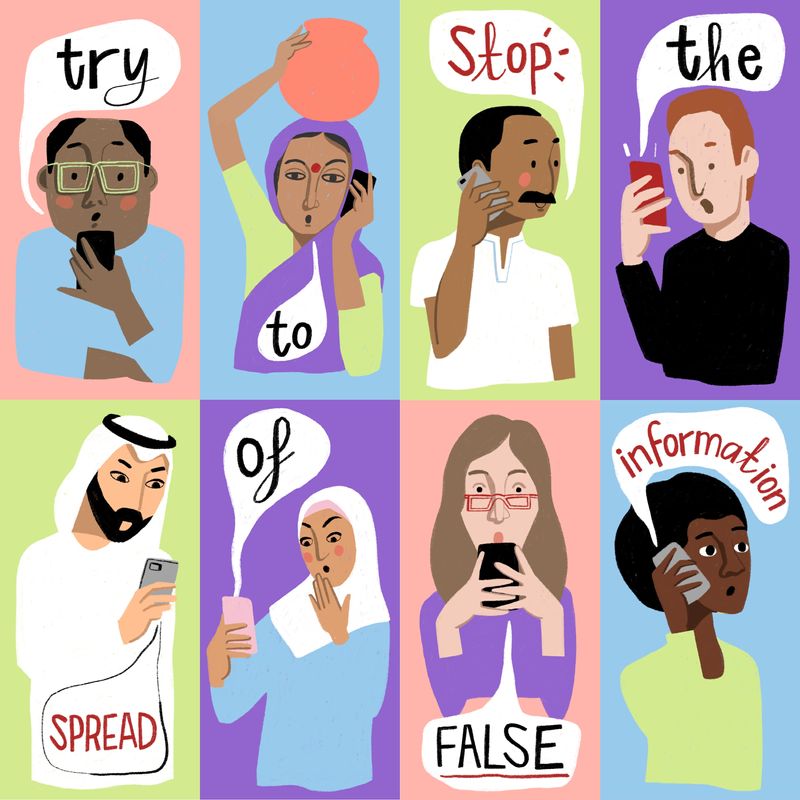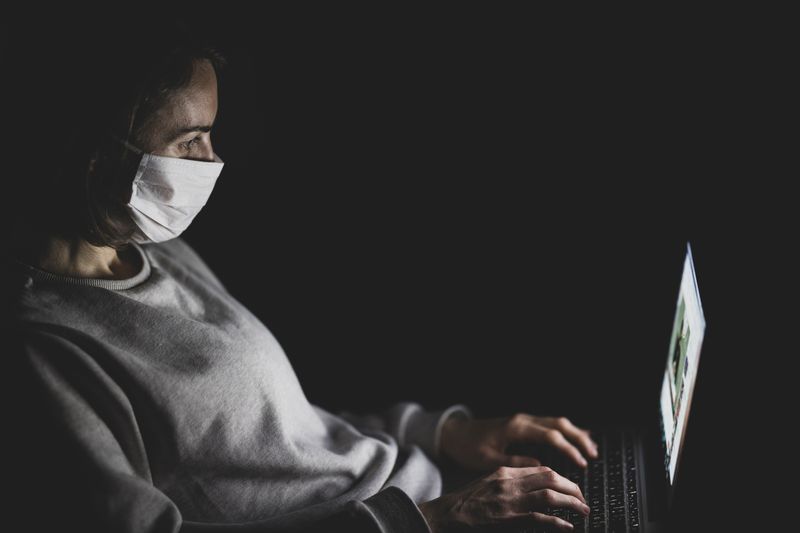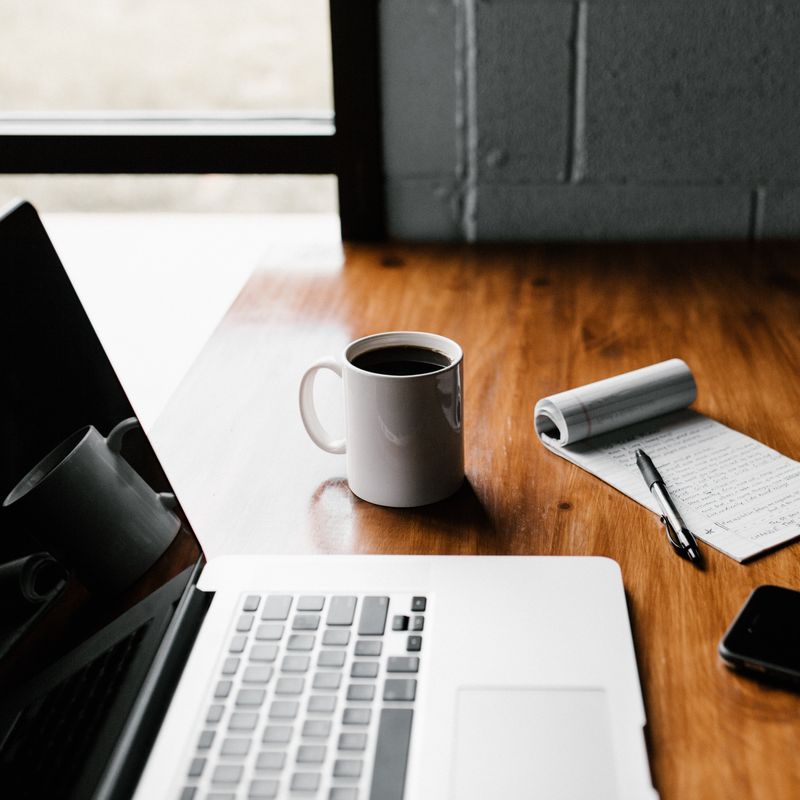
Coronavirus Fake News: the Essential Guide (2021) – In this article I have put together what I consider an essential guide about Coronavirus Fake News.
By reading this blog post you will learn about the top fake news concerning COVID-19 and what tech giants like Google, Facebook and Microsoft are doing to protect you.
If you like this article, you may also like my comprehensive guide about Coronavirus Phishing Scams.
Coronavirus Fake News: the Essential Guide
In its Novel Coronavirus (2019 nCoV) – Situation Report 13 the WHO uses the word infodemic to describe ‘an over-abundance of information’ about COVID-19 (source: who.int):
The 2019-nCoV outbreak and response has been accompanied by a massive ‘infodemic’ – an over-abundance of information – some accurate and some not – that makes it hard for people to find trustworthy sources and reliable guidance when they need it.
In a joint industry statement, Google, Facebook, Microsoft and other tech giants acknowledge the risk of fraud and misinformation around Coronavirus and commit to put in place measures to elevate authoritative content and share critical updates:
The technology industry is working closely together in coordination with government healthcare agencies around the world on COVID-19 response efforts. Read our full statement. pic.twitter.com/Xn0fhyJLXm
— Google Public Policy (@googlepubpolicy) March 17, 2020
What is a Fake News?
Fake news is a form of news or story created to deliberately share misinformation around a topic of public interest.
The purpose of fake news is often to influence people’s views and gain an advantage over a third party.
Fake news is generally spread on social media but it can also affect traditional media like TV channels and newspapers.
What Are the Top Coronavirus Fake News?
In its entry Misinformation related to the 2019–20 coronavirus pandemic, Wikipedia lists the following categories of Coronavirus fake news (source: wikipedia.org):
- Conspiracy theories
- Size of the pandemic
- Medical misinformation
- Country-based misinformation
- Misinformation by governments
- Misinformation by criminals
- Diet
- Environment and wild life
What is a Conspiracy Theory?
In the words of Wikipedia again (source: wikipedia.org):
A conspiracy theory is an explanation of an event or situation that invokes a conspiracy by sinister and powerful actors, often political in motivation, when other explanations are more probable.
Conspiracy Theories and Coronavirus
For practicality, I am going to follow the Wikipedia categorisation of Coronavirus conspiracy theories. These see Coronavirus as a(n):
The two main conspiracy theories see COVID-19 as a form of biowarfare by either China or the US.
There are also other conspiracy theories but these have not had as much traction on the general public and mostly come from renown conspiracy theorists or isolated individuals. These are:
- Spy operation
- Population control scheme
- Pedophile sting operation
- Old virus
For more details on these, please refer to the already-cited Wikipedia entry on misinformation related to Coronavirus.
Is Coronavirus a Chinese Biological Weapon?
The main conspiracy theories about Coronavirus as a Chinese biological weapon concerns the Wuhan Institute of Virology (WIV).
Several media, including The Washington Times and ZeroHedge, claimed COVID-19 was part of a Chinese program for developing biological weapons.
While these claims were successively debunked by numerous reputable sources including The Washington Posts, The Financial Times and some US politicians, some level of concern remains around potential and accidental leakages from the WIV.
Is Coronavirus a US Biological Weapon?
In a number of countries, conspiracy theories of Coronavirus being a US biological weapon are being spread more or less officially. These are:
- Russia – Media outlet such Russia Defense Ministry-funded Zvezda and several Russian politicians claimed COVID-19 was a biowarfare experiment by the US to weaken the Chinese economy. For more details on this, there is a very interesting article by EU Observer with a list of Russia’s top fake news Coronavirus stories (source: euobserver.com).
- Iran – Several Iranian politicians, including former President and current Supreme Leader Ali Khamenei and head of Islamic Revolutionary Guard Corps (IRGC) Hossein Salami, claimed on several occasions that the Coronavirus is a biological attack by the US on Iran and China.
- China – Conspiracy theories in China are mostly built around the 2019 Military World Games, which were held in China and lasted until the end of October 2019. According to Chinese propaganda, the US military athletes at the games were spies in disguise, who were in China to deploy the virus. Some Chinese media, including Chinese military news site Xilu, and The Ministry of Foreign Affairs, endorsed this theory.
- Arabic countries – Some writers from the Arabic press think COVID-19 is a virus created by the US to sell vaccines.
- Philippines – In the Philippines, a senator suggests that the Coronavirus is a US biological weapon against China.
- Venezuela – A member of Constituent Assembly claimes COVID-19 is a virus created by the US against Latin America and China.
Size of the Pandemic
A number of conspiracy theories about the size of the COVID-19 pandemic have been circulating since January 2020.
Is China Reporting Real Numbers on Coronavirus?
These mostly concern the ‘real’ number of Coronavirus cases in China and Wuhan in particular, and Taiwan. According to these conspiracy theories, the number of people infected would be much higher than the official statistics in China show.
Although these theories were referenced by a number of social and traditional media, including Taiwan News (Taiwan) and The Daily Mail (UK), they were soon debunked as fake news.
Medical Disinformation
This has probably been the most dangerous type of fake news, and it is the one most tech giants including Google, Facebook and Twitter are acting against.
Since the early start of the COVID-19 outbreak, there has been a significant number of medical fake news related to the Coronavirus. The main medical disinformation has been about:
- An allegedly already-existing vaccine
- Cocaine protecting from COVID-19 by sterilising your nostrils
- African people being more resistant to Coronavirus thanks to genetics
- 5G, or the fifth generation of wireless technology, being responsible for COVID-19
- Face masks being ineffective
- Pets being infected and spreading the virus, which led to hundreds of pets in China and elsewhere being abandoned
- Methanol curing or preventing from catching Coronavirus, which led to more 300 deaths from methanol poisoning in Iran (and 30 in Turkey)
- Boiled ginger killing Coronavirus
- Drinking lemon with water preventing people from catching COVID-19
- Hot saunas and hair dryers killing Coronavirus
- a Sri-Lankan drink preventing people from catching Coronavirus
- Turmeric and LifeBuoy brand soap, UV-C light, chlorine, and high temperatures being able to kill COVID-19
- Holding your breath for 10 seconds being used as a self-test for Coronavirus
- Disinfectant (injected) or bleach being able to kill COVID-19
Is There a Vaccine for COVID-19?
Currently there is no vaccine ready for treating COVID-19.
Coronaviruses have already caused two epidemics, SARS in 2002 and MERS in 2012. Vaccines for these two viruses already exist but these are different from the current Coronavirus.
COVID-19 shares 80-90% of its genetic materials with the virus that caused SARS (for this reason it’s called SARS-COV-2).
Some companies like Novavax are trying to repurpose the vaccine used for SARS for the treatment of COVID-19 patients.
They say they have already a number of human trials lined up (source: theguardian.com).
Does Cocaine Protect from Coronavirus?
No, snorting cocaine doesn’t protect from COVID-19.
The French government had to publicly confirm that cocaine doesn’t protect against COVID-19 after a number of Twitter accounts reported fake news on this topic.
#Coronavirus | Désinfox
❌ Non, La cocaïne NE protège PAS contre le #COVID19 .
✅ C’est une drogue addictive provoquant de graves effets indésirables et nocifs pour la santé des personnes.
👉 https://t.co/ajSGwecauL pic.twitter.com/4GZ01Qmg5X— Ministère des Solidarités et de la Santé (@MinSoliSante) March 8, 2020
Are African People Immune to COVID-19?
No, African people are not immune to COVID-19.
The rumours started to spread (again) on Twitter with some posts being retweeted over 2,000 times.
Although African people tend to respond differently to infections due to genetics (source: pasteur.fr), this doesn’t mean they are immune to Coronavirus.
Is 5G Responsible for COVID-19?
5G is not responsible for COVID-19.
This conspiracy theory, which was also mentioned by The Daily Start, claims that the ‘electromagnetic radiation from 5G suppresses the immune system, helping the virus to thrive’ (source: fullfact.org).
Currently, there is no evidence between 5G Wifi networks and Coronavirus.
Can Face Masks Protect from Coronavirus?
Face masks are effective at capturing droplets, which are the main form of transmission for COVID-19.
Some studies show a fivefold protection against the virus as opposed to no barrier (source: theguardian.com).
The virus also spreads through the eyes and tiny viral particles (aerosols) so wearing a face mask is no guarantee you will not catch the Coronavirus.
Can Pets Catch and Spread COVID-19?
A Chinese study showed how pets are ‘highly-susceptible’ to Coronavirus and that this can easily be transmitted between them (source: independent.co.uk).
Having said that, at present there is no evidence that pets can spread COVID-19.
Can Lemon Protect against Coronavirus?
No, lemon doesn’t protect against Coronavirus.
The fake news first appeared on a Youtube claiming lemon can cure or protect agains COVID-19 because it contains vitamin C.
Currently, there is no scientific evidence to support this claim.

Coronavirus Fake News: the Tech Giants
Coronavirus Fake News and Google
In a blog post by CEO Sundar Pichai on March 6th, Google shared some of the initiatives in place to protect ‘people from misinformation’ (source: blog.google.com):
Our Trust and Safety team has been working around the clock and across the globe to safeguard our users from phishing, conspiracy theories, malware and misinformation, and we are constantly on the lookout for new threats. On YouTube, we are working to quickly remove any content that claims to prevent the coronavirus in place of seeking medical treatment. On Google Ads we are blocking all ads capitalising on the coronavirus, and we’ve blocked tens of thousands of ads over the last six weeks. We are also helping WHO and government organisations run PSA ads. Google Play also prohibits developers from capitalising on sensitive events, and our long-standing content policies strictly prohibit apps that feature medical or health-related content or functionalities that are misleading or potentially harmful.
Coronavirus Fake News and Facebook
In a post on their help centre, Facebook confirmed their commitment to fight fake news on their platform:
We are committed to reducing the spread of false news on Facebook. We remove fake accounts and disrupt economic incentives for people that share misinformation.
In the same post, they also give users some tips on how to spot fake news:
- Be skeptical of catchy headlines with shocking claims, often with exclamation points
- Look closely at the link as this might be a look-alike one. If in doubt, don’t click or go to the site to compare the link to established sources
- Make sure the story is written by a source that you trust
- Watch for unusual formatting like misspellings or awkward layouts
- Be aware of manipulated images or videos
- Check the dates as fake news may contain timelines that make no sense, or event dates that have been altered
- Check for evidence like authoritative sources mentioned in the article
- If no other news source is reporting the same story, it may indicate that the story is false
- Check whether the source is known for parody, and whether the story’s details and tone suggest it may be just for fun
- Only share news that you know to be credible.
Before the Coronavirus outbreak, Facebook had already put in place a system to help identify and remove fake news.
The system is a mix of technology and human reviews, including third-party fact-checkers ‘who are certified through the non-partisan International Fact-Checking Network to help identify and review false news’ (source: facebook.com).
These third-party fact-checkers are:
- fullfact.org and factcheckni.org (UK)
- thejournal.ie (Ireland)
- afp.com, ap.org, dailycaller.com, factcheck.org, leadstories.com, politifact.com, sciencefeedback.co, thomsonreuters.com, usatoday.com (US)
- afp.com, aap.com.au (Australia)
- afp.com, radio-canada.ca (Canada)
- afp.com, africacheck.org (South Africa)
For the full list of third-party fact-checkers used by Facebook, please refer to this post.
Facebook also gives users the option of reporting a post as fake news by following this online procedure.
On April 16th Facebook published an update on how they are dealing with COVID-19 misinformation (source: about.fb.com):
We’ve now directed over 2 billion people to resources from the WHO and other health authorities through our COVID-19 Information Center and pop-ups on Facebook and Instagram with over 350 million people clicking through to learn more.
Facebook has partnered with ‘over 60 fact-checking organisations that review and rate content in more than 50 languages around the world’ (source: about.fb.com).
They have also announced a $1 million grant programme to support these organisations.
Facebook is also going to show messages to people who have interacted with fake news about Coronavirus:
We’re going to start showing messages in News Feed to people who have liked, reacted or commented on harmful misinformation about COVID-19 that we have since removed. These messages will connect people to COVID-19 myths debunked by the WHO.
Coronavirus Fake News and Twitter
In a post published on March 16th, Twitter acknowledges the effect COVID-19 is having on their platform (source: blog.twitter.com):
The effects of COVID-19 on Twitter have already surpassed any event we’ve seen, and it’s possible that as the pandemic continues, we will see additional stress on our service.
In response to the increase in the number of tweets with Coronavirus fake news and misinformation, Twitter is broadening their definition of ‘harm to address content that goes directly against guidance from authoritative sources of global and local public health information’ (source: blog.twitter.com).
More specifically, they are asking people to remove tweets about the following topics:
- Denial of global or local health authority recommendations in an attempt to influence people, such as ‘social distancing doesn’t work’
- Description of treatments or protective measures not immediately harmful but either ineffective, not applicable to COVID-19, or misleading, such as ‘heat kills Coronavirus’
- Description of harmful treatments that are ineffective, do not apply to COVID-19, or are misleading, such as ‘drinking bleach will cure COVID-19’
- Denial of established scientific facts about transmission from global and local health authorities, such as COVID-19 doesn’t infect children’
- Claims around COVID-19 that intends to manipulate people into certain behaviour for the gain of a third party, such as ‘Coronavirus is an attempt to destroy capitalism by crashing the stock market’
- Unverified claims that incite people to action and cause widespread panic, social unrest or large-scale disorder, such as ‘The National Guard just announced that no more shipments of food will be arriving for 2 months’
- Unverified claims made by people impersonating a government or health official or organisation (see my coverage of phishing in this same article)
- False or misleading information around COVID-19 diagnostic criteria or procedures, such as ‘if you can hold your breath for 10 seconds, you do not have coronavirus’
- False or misleading claims on how to differentiate between COVID-19 and a different disease, in an attempt to diagnose someone, such as “if you have a wet cough, it’s not coronavirus – but a dry cough is”
- Claims that specific groups, nationalities are not susceptible to COVID-19, such as “people with dark skin are immune to COVID-19 due to melanin production”
- Claims that specific groups, nationalities are more susceptible to COVID-19, such as “avoid businesses owned by Chinese people as they are more likely to have COVID-19.”
Note from the author: from the post it’s not clear whether Twitter would single-handedly remove such tweets or it would simply rely on the user’s good will. It seems safe to assume so as in the same post they state they are ‘building systems that enable our [Twitter’s] team to continue to enforce our [Twitter’s] rules remotely around the world’.
Asked about videos of Trump’s latest suggestion about inserting light or disinfectant into COVID-19 patients, a spokesman for Twitter confirmed they ‘did not violate its COVID-19 misinformation policy’ (source: itnews.com.au).
Twitter later blocked the trending hashtags ‘InjectDisinfectant’ and ‘InjectingDisinfectant’.
Coronavirus and Microsoft
On March 20th Microsoft published a blog post highlighting what they are doing to protect their customers against ‘Coronavirus-themed attacks’ (source: microsoft.com):
First, 91 percent of all cyberattacks start with email. That’s why the first line of defence is doing everything we can to block malicious emails from reaching you in the first place. A multi-layered defence system that includes machine learning, detonation, and signal-sharing is key in our ability to quickly find and shut down email attacks.
If any of these mechanisms detect a malicious email, URL, or attachment, the message is blocked and does not make its way to your inbox. All attachments and links are detonated (opened in isolated virtual machines).
Microsoft also gives users advice on what they can do if they come across a suspected case of phishing. They can:
- Report an unsafe website via Microsoft Edge (More Icon > Send Feedback > Report Unsafe Site) or Internet Explorer (Gear Icon > Safety > Report Unsafe Website)
- Submit a file for analysis at this link.
The team at Bing, Microsoft-owned search engine, put together a Coronavirus live tracker, which you can access at this link:
Coronavirus Fake News: Appendix
Coronavirus Fake News: Sources
https://en.wikipedia.org/wiki/Misinformation_related_to_the_2019%E2%80%9320_coronavirus_pandemic
https://www.bbc.com/news/52039642
https://www.facebook.com/help/1952307158131536https://www.facebook.com/help/publisher/182222309230722https://www.facebook.com/help/572838089565953
https://blog.twitter.com/en_us/topics/company/2020/An-update-on-our-continuity-strategy-during-COVID-19.htmlhttps://www.blog.google/inside-google/company-announcements/coronavirus-covid19-response/https://www.microsoft.com/security/blog/2020/03/20/protecting-against-coronavirus-themed-phishing-attacks/
https://www.theguardian.com/world/2020/apr/04/when-will-a-coronavirus-vaccine-be-ready
https://www.businessinsider.com/coronavirus-cocaine-cure-fake-spreads-rebutted-by-french-government-2020-3?r=US&IR=T
https://www.pasteur.fr/en/africans-and-europeans-have-genetically-different-immune-systems-and-neanderthals-had-something-do
https://fullfact.org/health/5G-not-accelerating-coronavirus/
https://www.theguardian.com/world/2020/apr/04/can-a-face-mask-protect-me-coronavirus-covid-19-myths-busted
https://www.independent.co.uk/life-style/health-and-families/coronavirus-pet-dog-can-you-catch-it-transmission-a9376926.html
https://www.itnews.com.au/news/twitter-allows-trump-covid-19-disinfectant-videos-blocks-injectdisinfectant-547230
Coronavirus Fake News: Photos
https://unsplash.com/@enginakyurt
https://unsplash.com/photos/8g-vyBUUwG0




